No “denazification”, no protection of minorities, no NATO... the invasion of Ukraine is a war of conquest. The existential threat to Russia is the existence of a Ukrainian state.
On 17 September 1939, the Red Army attacked Poland from the east with almost no opposition, as the Polish army was fighting the German invasion from the west. The Soviets thus fulfilled the agreements of the Ribbentrop-Molotov Pact and divided Poland with the Germans. It was a war of conquest, of course, but Stalin's propagandists presented it as an operation “to protect the fraternal Belarusian and Ukrainian population”. The Spanish communist Dolores Ibarruri, the “Pasionaria”, exiled in the Soviet Union because of the defeat of the Republic in the Spanish Civil War, wrote like so many other communist propagandists in favour of the Soviet “special military operation”. Poland was a landlord regime in which “millions of Ukrainians, Belarusians and Jews did not even have the right to speak their language freely, and lived in pariah conditions”. The Polish government did not represent its people, but “the interests of the bankers and big capitalists of London and Paris”, and that was why these countries had declared their support for Poland, which was also the spearhead from which “imperialism” could attack the Soviet Union, “the fatherland of the proletariat”. Such an abject regime was of course also guilty of all kinds of crimes and constituted a “prison of peoples, a Republic of concentration camps”, and its demise was the best possible news: “The workers of all countries have greeted with enthusiasm the liberating action of the Red Army on the territory of the former Polish landlord state”.
All this was nothing but a pack of crude lies which served to justify the imperialist policy of the Soviet Union and comrade Stalin, lies which the Poles had to put up with during the more than four decades of the “liberating action of the Red Army”. In the countries dominated by Moscow this was the official story, it was the “Truth” although everyone knew it was nothing but propaganda. The lies collapsed like a house of cards after the fall of the Iron Curtain, but, unfortunately, it seems that many have forgotten this history lesson.
More than eighty years later, the proud heir to the Soviet Union invaded Ukraine in February 2022. The reasons for the “special military operation” were spread far and wide by the Kremlin’s new Passionaries. Firstly, “denazification”, because Ukraine is a Nazi regime; the fact that its president Volodymyr Zelensky is Jewish and that he won democratic elections with a large majority throughout the country is irrelevant to the propaganda. And it was no longer a “state of landowners”, but of oligarchs. The second reason was the persecution, even genocide, against Russian speakers who “did not even have the right to speak their language freely”. No one asked why Russia had allowed this terrible situation for eight years, nor why, once “liberated”, soldiers from the People’s Republics were conscripted en masse, ill-equipped and sent to die at the front as cannon fodder, as the soldiers themselves and their families denounced. These arguments, although they are cited again from time to time, soon became irrelevant in favour of the geopolitical argument. In reality, Russia was not responsible for the war: the real culprit was NATO.
It was repeated a thousand times that NATO had signed up to never expand eastwards and then claimed that this was a promise made to Gorbachev. It was neither one thing nor the other, and the truth is that the countries that were in the Soviet orbit are the ones that have most wanted to join the Alliance, one might ask why. Ukraine was to become the spearhead from which “US imperialism” could attack “holy mother Russia”, so the special military operation was really a defensive action. Finland’s accession and Sweden’s integration into NATO should have provoked similar action and, in addition to the obvious failure for the Putin regime, detracted from the credibility of the argument. There have been many other “reasons” to justify the invasion, some of them highly imaginative and others completely absurd, but which have found an audience in the West willing to believe anything: the never-found bio-labs, the 300,000 modified mosquitoes that Russia denounced to the UN, the NATO generals hiding in Azovstal, the Lebanese arms dealers, and so on and so forth.
These arguments, especially that of NATO aggression, have been repeated ad nauseam and have been widely accepted, but it has been the Russians themselves who have explained their real motivation for invading Ukraine, as they are also aware that whatever they say, the propaganda will run its course. The first was Putin, who in a public statement admitted that what is really important for Russia is its territorial gains: “As far as negotiation is concerned, they are trying to make us give up those gains that we have made in the last year and a half. This is impossible, everyone knows it’s impossible, the Ukrainians know it, the elite in the West knows it, everyone knows it”. Behind the “denazification”, the protection of minorities and NATO, there was really the territorial conquest and, if the Russian army had not failed miserably in the first months of the war, the installation of a puppet government in Kyiv. Nothing new under the sun.
But the clearest and most sincere message was posted by Dmitry Medvedev, former president and current deputy chairman of the Russian Security Council, on his Telegram channel: “Ukraine’s existence is mortally dangerous for Ukrainians. And I don't mean just the current state, the Bandera political regime, but anyone... The presence of an independent state on historical Russian territories will be a constant reason for the resumption of hostilities. That is why the existence of Ukraine is fatal for Ukrainians... No matter how hard they try to join the EU and NATO. Faced with a choice between life and death, endless war, the vast majority of Ukrainians will eventually choose life. They will understand that life in a great common state is far better than death. Their deaths and the deaths of their loved ones. And the sooner Ukrainians realise this, the better”. Medvedev is famous for some of his extreme statements, but in this case what he is bluntly saying is what Putin and his propagandists have repeated on many occasions, that Ukraine does not exist and is part of Russia. Therefore, the existential threat to Russia is the existence of a Ukrainian state.
When talking about negotiations it is essential to understand what each side really wants. If the ultimate goal for Russia is the disappearance of Ukraine, any peace treaty would only be an intermediate step towards that goal, in order to rearm and plan a better operation, and would not lead to a real peace. We have a very similar case in the Middle East after the 7 October massacre. If Hamas’s goal is to wipe Israel off the face of the earth... What can be negotiated with them? Only the realisation that this goal is unattainable could raise the real possibility of some kind of peace negotiations, not forgetting, of course, the destruction and all the war crimes of the Russian “liberators”. Until then, the only possible option is to continue to support Ukraine in the defence of its territory and freedom; the other option is to look the other way, give carte blanche to the aggressor and ask: Who will be next?
Photo: 93rd Mechanised Brigade Kholodnyi Yar/Facebook
Read also
The Romanian Crossroads
In a world where every day we wake up to news that turns upside down what we took for granted, as we are seeing in Syria or South Korea, Romania has made its mark with the surprising result of the first round of the presidential elections.
Álvaro Peñas
Rubén Pulido: Jihadism is using illegal immigration networks to enter Spain and Europe.
Rubén Pulido served in the Air Force for 11 years. During that time, he also completed various military advanced training courses, obtained a Master's Degree in International Relations at UCAM, and was awarded the Medal of Merit and Sacrifice.
Álvaro Peñas
Nicolás Márquez: “Allende was a usurper of power who had to be deposed by force because he was surrounded by terrorists and foreign agents”.
Interview with Nicolás Márquez, essayist and political analyst.
Álvaro Peñas
Hugo Zunzarren: “In hybrid warfare, the battlefield is people’s minds”
Attacking companies that are critical to a country undermines confidence in politics and the economy and creates more insecurity. This is all part of a hybrid war environment, not just against companies or against states, but as part of a whole.



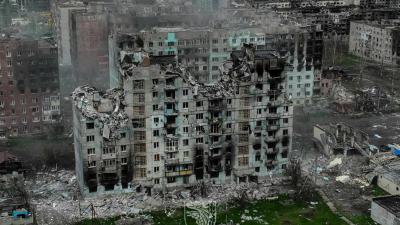


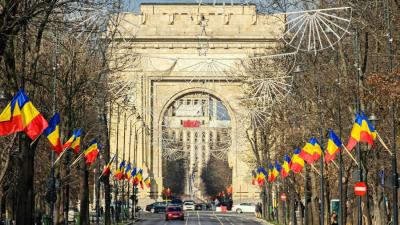

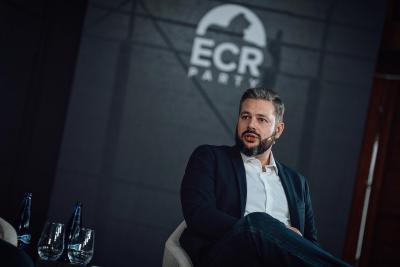

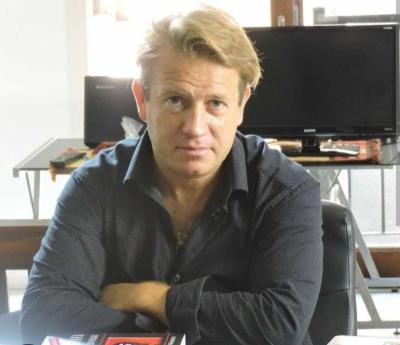

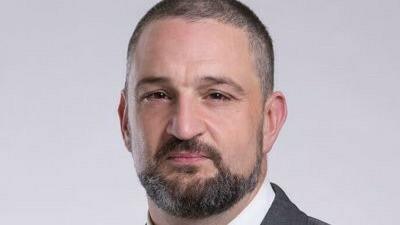

Comments (0)